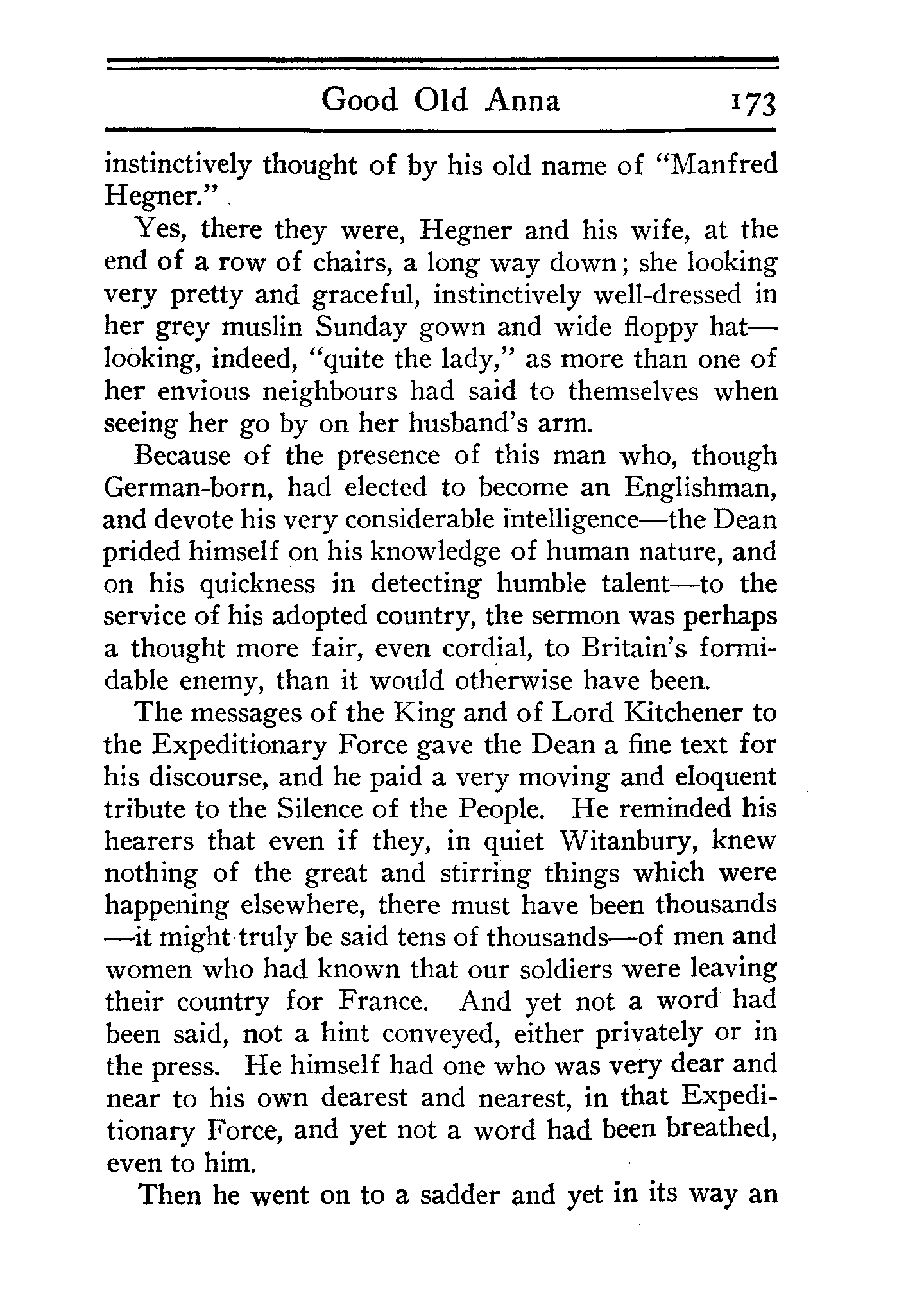 p172 _
-chap- _
toc-1 _
p173w _
toc-2 _
+chap+ _
p174
p172 _
-chap- _
toc-1 _
p173w _
toc-2 _
+chap+ _
p174
instinctively thought of by his old name of "Manfred
Hegner."
Yes, there they were, Hegner and his wife, at the
end of a row of chairs, a long way down; she looking
very pretty and graceful, instinctively well-dressed in
her grey muslin Sunday gown and wide floppy hat --
looking, indeed, "quite the lady," as more than one of
her envious neighbours had said to themselves when
seeing her go by on her husband's arm.
Because of the presence of this man who, though
German-born, had elected to become an Englishman,
and devote his very considerable intelligence -- the Dean
prided himself on his knowledge of human nature, and
on his quickness in detecting humble talent -- to the
service of his adopted country, the sermon was perhaps
a thought more fair, even cordial, to Britain's formidable
enemy, than it would otherwise have been.
The messages of the King and of Lord Kitchener to
the Expeditionary Force gave the Dean a fine text for
his discourse, and he paid a very moving and eloquent
tribute to the Silence of the People. He reminded his
hearers that even if they, in quiet Witanbury, knew
nothing of the great and stirring things which were
happening elsewhere, there must have been thousands --
it might truly be said tens of thousands -- of men and
women who had known that our soldiers were leaving
their country for France. And yet not a word had
been said, not a hint conveyed, either privately or in
the press. He himself had one who was very dear and
near to his own dearest and nearest, in that Expeditionary
Force, and yet not a word had been breathed,
even to him.
Then he went on to a sadder and yet in its way an
[[173]]
p172 _
-chap- _
toc-1 _
p173w _
toc-2 _
+chap+ _
p174